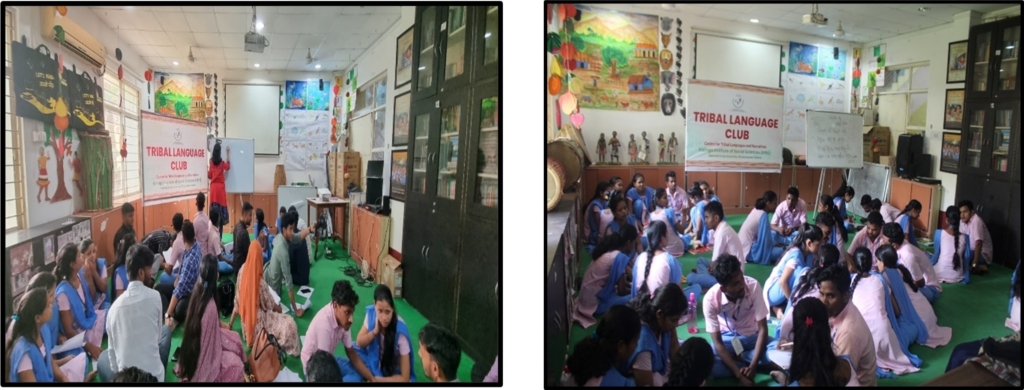Project Description
Kalinga Institute of Social Sciences-Deemed to be University (KISS-DU) has made significant educational steps through its pioneering Mother Tongue-Based Multilingual Education (MTBMLE) approach. This initiative started as a response to the academic challenges posed by students’ limited familiarity with the language of instruction, resulting in learning gaps.
Innovative Language Lab:
To enhance the effectiveness of MTBMLE, KISS-DU took a significant step by establishing a Language Lab in September 2018. This Language Lab is the first in India designed specifically for Tribal languages. It serves to facilitate the teaching of languages in a seamless and highly effective manner. Importantly, it creates a well-structured constructive collaboration between the University and Schools. Currently, the Language Laboratory is housed in a 30 ft X 20 ft air-conditioned room.
University-School Collaboration:
The unique strength of the MTBMLE project lies in its collaborative approach. KISS-DU collaborates with subject experts, researchers, and civil society members to initiate, shape, and propel the project. This collaborative effort includes brainstorming sessions and seminars to foster innovative ideas and strategies. While the university level focuses on research, innovation, conceptualization, and theorization, the school level concentrates on experimentation and implementation.
Innovative PG Course:
At the university level, KISS-DU introduced an innovative Postgraduate course titled “Multilingual Education in India for Tribal.” This course equips students pursuing PG in Comparative Tribal Languages & Literatures with the skills required for MTBMLE teaching. This strategic move enhances knowledge and fulfils the demand for qualified MTBMLE teachers at the school level.
KISS-DU’s Language Lab highlights the institution’s unwavering commitment to inclusive and effective education. By addressing language barriers and fostering collaboration between the university and schools, KISS-DU is making significant steps in empowering tribal and native communities through culturally relevant education
- Ph.D. scholars, PG Students and other stakeholders crafting MTBMLE primers for school-level implementation
- Postgraduate students passionately teach in their mother tongue at the school level



